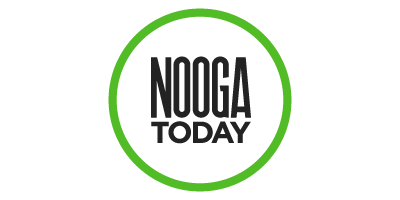Back in 1910, following an issue from the judge to close all Chattanooga saloons (even before national Prohibition), Hamilton County Sheriff Samuel Conner foreshadowed the speakeasy in Chattanooga: “the sale of whisky in this town, except on the sly, is at an end.”
And on the sly it was.
So sly, in fact, that it’s actually pretty hard to uncover its history in Chattanooga. Why is it so difficult? (and trust us, it is difficult — we spent hours at the library shuffling through old newspaper articles + records, and that was after several hours on Google.) We have a few ideas:
- Tennessee was a Moonshine state, and Chattanooga was big on bootlegging, which means the attention was often focused on illegal Moonshine creation + sale, rather than speakeasies — Wauhatchie Pike, for instance, was known as a “Moonshine motorway,” and in 1922, there was a major raid on Signal Mountain.
- It also helps to define what a speakeasy is — which is technically just an establishment that sells alcoholic beverages. Some of these were simply rooms inside of an apartment, or dingy backrooms. Aka, not every speakeasy was a Gatsby-style nightclub on the inside.
- Oftentimes, speakeasy owners would pay officers to look the other way + keep quiet, either with money or the occasional drink. In Chattanooga, it was reported that federal agents (who’d come to town because the situation was “getting out of hand”) were engaged in “illicit whisky business” in 1925. While the agents were eventually exonerated and two other men found guilty, it caused quite a bit of suspicion around town.
- Because of their nature, speakeasies weren’t really talked about unless they were discovered — if not, it’s possible that no records of them exist.
What do we know?
The most currently well-known speakeasy back in Chattanooga’s Prohibition days is the Stong Building, now home to TailGate Brewery, formerly Terminal Brewhouse, and once, the Terminal Hotel.
The former hotel gained a “seedy” reputation, and while there’s not much information on its speakeasy days, it remains the one most discussed when referencing Chattanooga’s illicit bar scene — you’ll often hear the phrase “legend has it that it held a house of ill-repute.” Here’s a quick synopsis:
- 1920s | The hotel’s late-night cafeteria became a speakeasy.
- 1930s | Its reputation went downhill, and some say it became a house of prostitution.
- 1940s | Chester Davis — who was one of the region’s first Black business owners — bought the building + revamped the space.
Ferger Place — a historic neighborhood that was founded by two wealthy investors + formerly housed local high-class families — features a home that the Times Free Press reported once contained a speakeasy. While there aren’t many details on the space, it is said to have an upstairs ballroom, which served as the speakeasy back during Prohibition.
A “historic home and garden tour” of the neighborhood was postponed indefinitely back in 2020 due to the pandemic. Ferger Place’s website encourages visitors to “stay tuned” for a post-pandemic reopening date, wherein interested citizens may be able to check out the former speakeasy.
Our off-base theory? Maybe even Underground Chattanooga was later used as a speakeasy-type establishment underneath the city. For now, though, we’ll stick to the modern speakeasies in Chattanooga — legally.

While records of speakeasies are scarce, old clippings share the names of people + business that violated Prohibition laws — this particular blurb even lists J.W. Kelley & Co. | Photo by NOOGAtoday, article via the Chattanooga Library
Modern-day speakeasies
Company Restaurant | Get in via a secret entrance, or through the back alley “away from prying eyes” to enjoy drinks + food at this secret space.
Unknown Caller | Enter through the bright red telephone booth on Cherry Street and travel through the long dark hallway until you reach the bar.
Wiseguy Lounge | This dark, out-of-plain-sight bar inside of Goodfella’s Pizzeria is the perfect space to go back in time.
American Draft | Beer hall in a train car. Need we say more?
The Office | This bar attached to City Café’s downtown location has a fun undercover name to go along with its speakeasy-like vibes.











